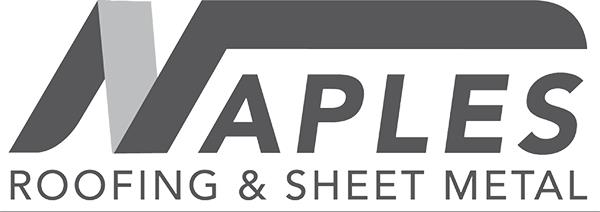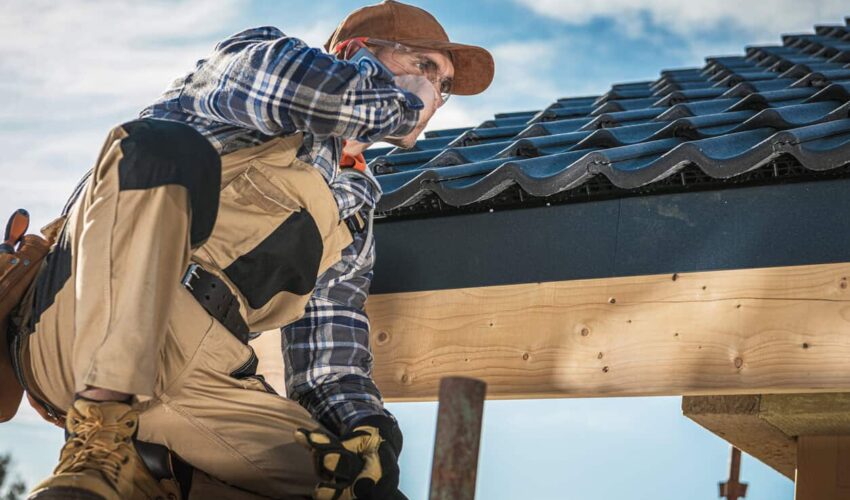You Need to Know About Commercial Industrial Roofing
In ensuring the integrity and functionality of large-scale facilities including factorie, Commercial industrial roofing is critical. Moreover, warehouses, and manufacturing plants. These roofing systems are made to withstand the particular difficulties presented by industrial settings, protecting against the elements, guaranteeing security, and protecting the interior’s valuables.
To maintain the continuous safety and operation of their industrial buildings, businesses should place a high priority on the proper roofing system selection, routine maintenance, and regulatory compliance.
Types of Commercial Industrial Roofing Systems:
- Built-Up Roofing (BUR)-
This traditional system involves layering bitumen and reinforcing fabrics to create a durable, multi-layered roof. BUR roofing is known for its resilience and longevity, making it a popular choice for industrial applications.
- Metal Roofing-
Metal roofing is valued for its durability, low maintenance requirements, and resistance to fire and harsh weather conditions. It is commonly used in industrial settings due to its longevity and energy-efficient properties.
- Single-Ply Membrane Roofing-
These roofing systems involve the installation of a single layer of membrane material, such as TPO (thermoplastic olefin) or EPDM (ethylene propylene diene monomer). Single-ply membranes offer excellent resistance to UV rays and chemical exposure.
- Modified Bitumen Roofing-
Combining the flexibility of rubberized or plastic additives with traditional BUR, modified bitumen roofing is particularly suitable for buildings with complex designs and varying roof angles.
Environmental Considerations-
- Commercial industrial roofing can contribute to energy efficiency and sustainability. Reflective roofing materials, such as cool roofs, can help reduce energy consumption by reflecting sunlight and minimizing heat absorption.
- The installation of solar panels on industrial roofs is a growing trend, allowing businesses to harness renewable energy and potentially offset electricity costs.
Maintenance and Repairs-
- Regular maintenance is crucial for the longevity of industrial roofing systems. Scheduled inspections, cleaning, and prompt repairs of any identified issues can prevent small problems from escalating into significant and costly damages.
- Roofing professionals should be enlisted to conduct thorough inspections, addressing issues such as leaks, damaged flashing, and potential wear and tear.
Durability and Resistance-
- Commercial industrial roofing must withstand a range of challenges, including extreme weather conditions, exposure to chemicals, and potential foot traffic. Choosing a roofing material with high durability and resistance to these factors is essential for the long-term performance of the system.
- Proper insulation is crucial to protect against thermal shocks, especially in environments where temperature fluctuations are common.
Compliance with Regulations-
Businesses need to be aware of local building codes and regulations that dictate the specifications for industrial roofing systems and commercial epdm roofing in us. Compliance ensures that the roofing solution meets safety standards and is legally approved.
Installation Expertise-
The installation of commercial industrial roofing requires specialized expertise. Hiring experienced contractors with a proven track record in industrial roofing is crucial to ensure proper installation and long-term performance.
Budget Considerations-
While quality should not be compromised, businesses should carefully consider their budget constraints when selecting and installing an industrial roofing system. Evaluating the long-term cost-effectiveness and return on investment is essential.
Emergency Response Planning–
Businesses should have an emergency response plan in place for unforeseen events, such as severe weather conditions or unexpected damages. This plan may involve having a reliable roofing contractor on standby for immediate repairs.
Importance of Commercial Industrial Roofing:
Commercial industrial roofing and commercial and industrial roofing contractors in usa holds immense importance for businesses and industrial facilities due to its critical role in maintaining the integrity, functionality, and longevity of large-scale structures. Here are several key aspects that highlight the importance of commercial industrial roofing:
Asset Protection-
Industrial facilities often house valuable equipment, machinery, and inventory. A well-designed and properly maintained commercial industrial roofing system protects these assets from weather elements, preventing water leaks, structural damage, and potential deterioration.
Operational Continuity-
Unforeseen roofing issues, such as leaks or structural damage, can disrupt daily operations and production processes. A reliable commercial industrial roofing system helps ensure operational continuity by providing a stable and secure environment for employees and machinery.
Employee Safety and Well-being-
A sound roofing system contributes to the safety and well-being of employees working within industrial facilities. Protection from the elements, including rain, snow, or extreme temperatures, enhances the overall working conditions and productivity of the workforce.
Regulatory Compliance-
Many regions have specific building codes and regulations related to roofing systems, especially in industrial settings. Compliance with these regulations is crucial to avoid legal issues and ensure the safety and structural integrity of the facility.
Energy Efficiency-
Energy-efficient roofing solutions, such as reflective or cool roofs, can contribute to reduced energy consumption. This not only lowers utility costs but also aligns with sustainability goals and environmental responsibility.
Long-term Cost Savings-
Investing in a durable and high-quality commercial industrial roofing system may involve initial costs, but it often leads to long-term savings. Reduced maintenance requirements, energy efficiency, and prolonged lifespan contribute to overall cost-effectiveness.
Protection Against Environmental Challenges-
A variety of environmental challenges, including extreme weather conditions, chemical exposure, and potential pollution, may expose industrial facilities. A robust roofing system provides a barrier against these challenges, safeguarding the facility and its contents.
Preservation of Structural Integrity-
The roof is a critical component of a building’s structure. A well-maintained commercial industrial roofing system contributes to the overall structural integrity of the facility, preventing issues such as water damage, rot, and mold that could compromise the building’s stability.
Enhanced Property Value-
A properly installed and maintained industrial roofing system can add value to the property. This is particularly important if a business ever decides to sell or lease the facility.
Emergency Preparedness-
An efficiently designed and well-maintained roofing system is part of an effective emergency response plan. In case of unforeseen events like severe weather conditions or accidents, a reliable roofing structure helps minimize potential damages and ensures a quicker recovery.
Comprehensive Facility Management-
Commercial industrial roofing and nrca contractors in usa is an integral part of comprehensive facility management. Regular inspections, maintenance, and timely repairs contribute to a well-managed and smoothly operating industrial facility.
Conclusion:
Essentially, companies need to put their attention toward making sure that their commercial industrial roofing systems and industrial roofing in usa are carefully chosen, maintained, and compliant. Understanding the significance of this vital component assures the safety of resources and personnel as well as the general prosperity and sustainability of industrial activities.
Purchasing high-quality roofing solutions and commercial industrial roofing contractor us is becoming a crucial part of strategic facility management as companies negotiate the increasingly complicated terrain of industrial environments.


